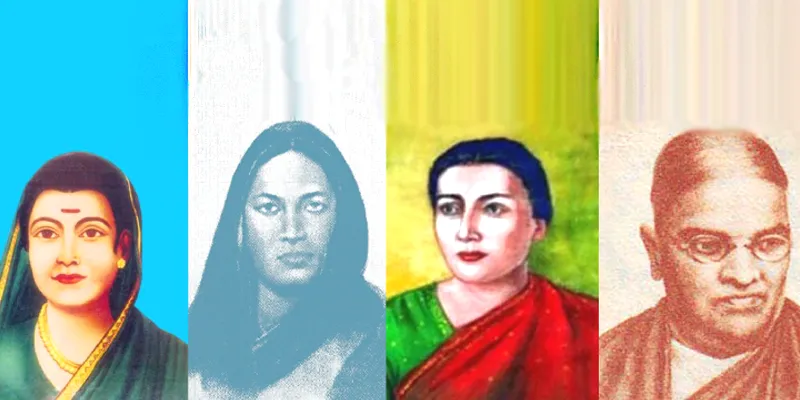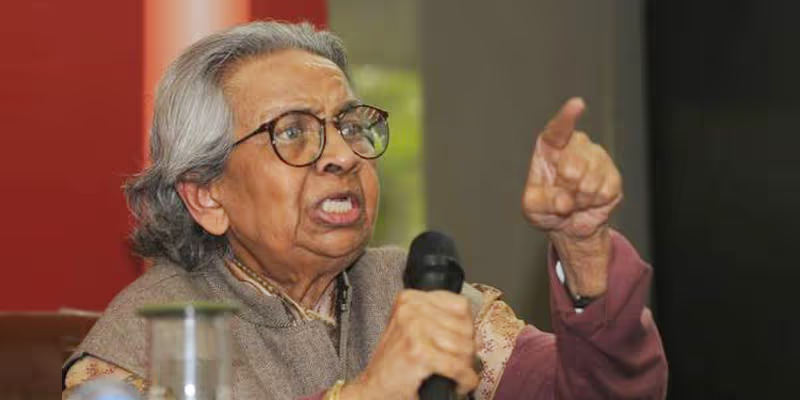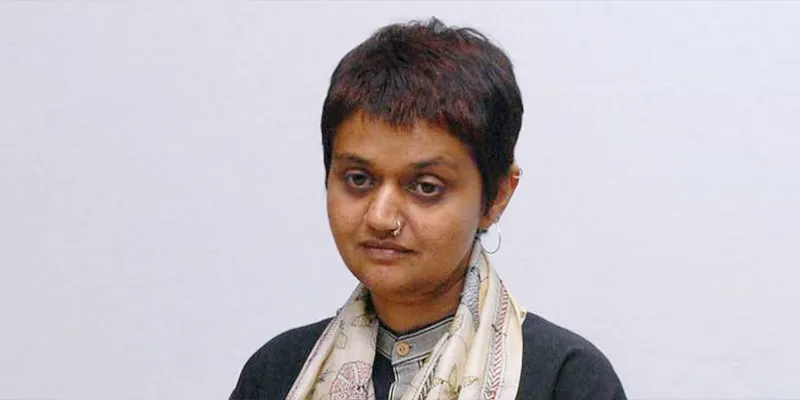Six Indian women who dedicated their lives to advancing feminism
In a patriarchal world where women have been traditionally silenced, these six icons of the Indian feminist movement defied the norm and paved the way to the feminism we experience today.
Historically, women have been told to stay quiet and watch the world go by while submitting themselves to the reins of patriarchy. Today, there is much more parity in the experiences women have, from getting an education to pursuing a career and beyond.
Although there is much more to be done in the sphere of women’s empowerment, we must recognise the centuries of hard work by the women who lived before us, to lead us to where we are now.
Here are six women whose lives revolved around empowering women.

Savitribai Phule, Fatima Sheikh, Tarabai Shinde, and Ramabai Ranade. Image credits: Patrika, Velivada, bamu.ac.in, Wikipedia
Savitribai Phule (1831-1897)
Savitribai Phule was a Dalit woman and a pioneer of feminism in India. She was also the country’s first female teacher who went on to set up 17 more schools that imparted education to women of all castes. She worked alongside her husband and other women, to abolish caste and gender discrimination. She also set up the 'Balhatya Pratibandhak Griha' to prevent female infanticide, and campaigned against the killing of widows and pregnant rape victims. Savitribai Phule is highly revered by advocates of the feminist movement in India today.
Fatima Sheikh (DOB & DOD unknown)
Fatima Sheikh was a colleague of the Phule couple and she is regarded as the first Muslim woman teacher of India. When the Phule couple began their life of activism, they were given the ultimatum of either stopping their practices or leaving their house. They chose the latter without a doubt, and were offered a place to live at the home of siblings Usman and Fatima Sheikh.
Savitribai Phule and Fatima Sheikh eventually set up a school together in the latter’s home, and began teaching women from marginalised communities. By doing so, they defied the norms of the Savarna and orthodox Muslim communities, and the risks that Fatima Sheikh, as a Muslim woman in the 19th century, took by going against these norms cannot be downplayed.
ALSO READ: 10 extraordinary and fearless women who rewrote history
Tarabai Shinde (1850-1910)
Tarabai Shinde was a feminist activist who protested the patriarchy and caste discrimination. She defied the inherent patriarchy found in Hindu scriptures, and her views still remain controversial today. Her first published work 'Stri Purush Tulana' in Marathi (Translation - Comparison of Women and Men) in which she explores the disparities between women and men, is regarded as one of India's first modern feminist texts.
Tarabai Shinde was an associate of the Phule couple, and their shared views of gender and caste oppression gave her the platform she needed to carry out her fight for women’s rights in India. Tarabai Shinde, however, did not only focus on women in India, but also believed that women around the world were similarly oppressed.
Ramabai Ranade (1863-1924)
Ramabai Ranade was one of the first women's rights activists in India, and the founder of Seva Sadan in Mumbai and Pune - an institution that trained thousands of women in various skills. She dedicated her life to making women self-reliant and financially independent.
As a child, Ramabai Ranade was not allowed to study, and was married off at the age of 11. Fortunately though, her husband encouraged her to complete her education and learn about the wider world. She contributed to many communities that worked towards women's welfare throughout her life.
ALSO READ: 10 inspirational women authors who told the stories untold
Dr Vina Mazumdar (1927-2013)

Image Credit: The Hindu
Dr. Vina Mazumdar was one of the first women to be involved in the ‘twin movements’ of Women's Studies and Women's Activism. She spent most of her time understanding the diverse experiences of women in the patriarchal system across India. Through her research, she and her colleagues realised that there wasn't any widespread knowledge about lived experiences underprivileged women, thus leading to the advent of the Centre For Women's Development Studies (CWDS), in 1980. In 1982, Dr Vina Mazumdar became a founding member of the Indian Association of Women's Studies (IAWS), which conducts national conferences to promote Women's Studies, even to this day.
Sharmila Rege (1964-2013)

Image credit: Feminism In India
Sharmila Rege was the Director of Krantijyoti Savitribai Phule Women's Studies Centre (KJSPWSC) at Savitribai Phule Pune University. Her work falls among three categories - Sociology, Women's Studies, and Women's Movements. She is most noted for her Dalit-feminism standpoint wherein she criticises the masculinisation of Dalithood, and Savarnisation of womanhood, which leads to to the exclusion of Dalit womanhood as a whole.
Throughout her career, she strongly reinforced Ambedkarite feminist ideologies which centre the feminist movement around the voices of the marginalised and oppressed. She also published her book “Writing Caste/ Writing Gender: Narrating Dalit Women’s Testimonios” in 2006. Unfortunately, Sharmila Rege passed away at the young age of 48 due to cancer.
Through the work of these impeccable women and many more in the past and present, it is of utmost importance to learn the following things for a stronger and more impactful feminist movement:
- Learning to exercise one’s privilege towards the collective good
- Recognising how not to encroach upon someone else’s space
- Passing the mic on to those from more marginalised communities
- Being inclusive and encouraging diversity
- Valuing the power of unity
Here’s to empowering each other and leading the feminist movement to a greater future!
ALSO READ: 5 Indian men who fought for women's rights and helped change their lives for the better







